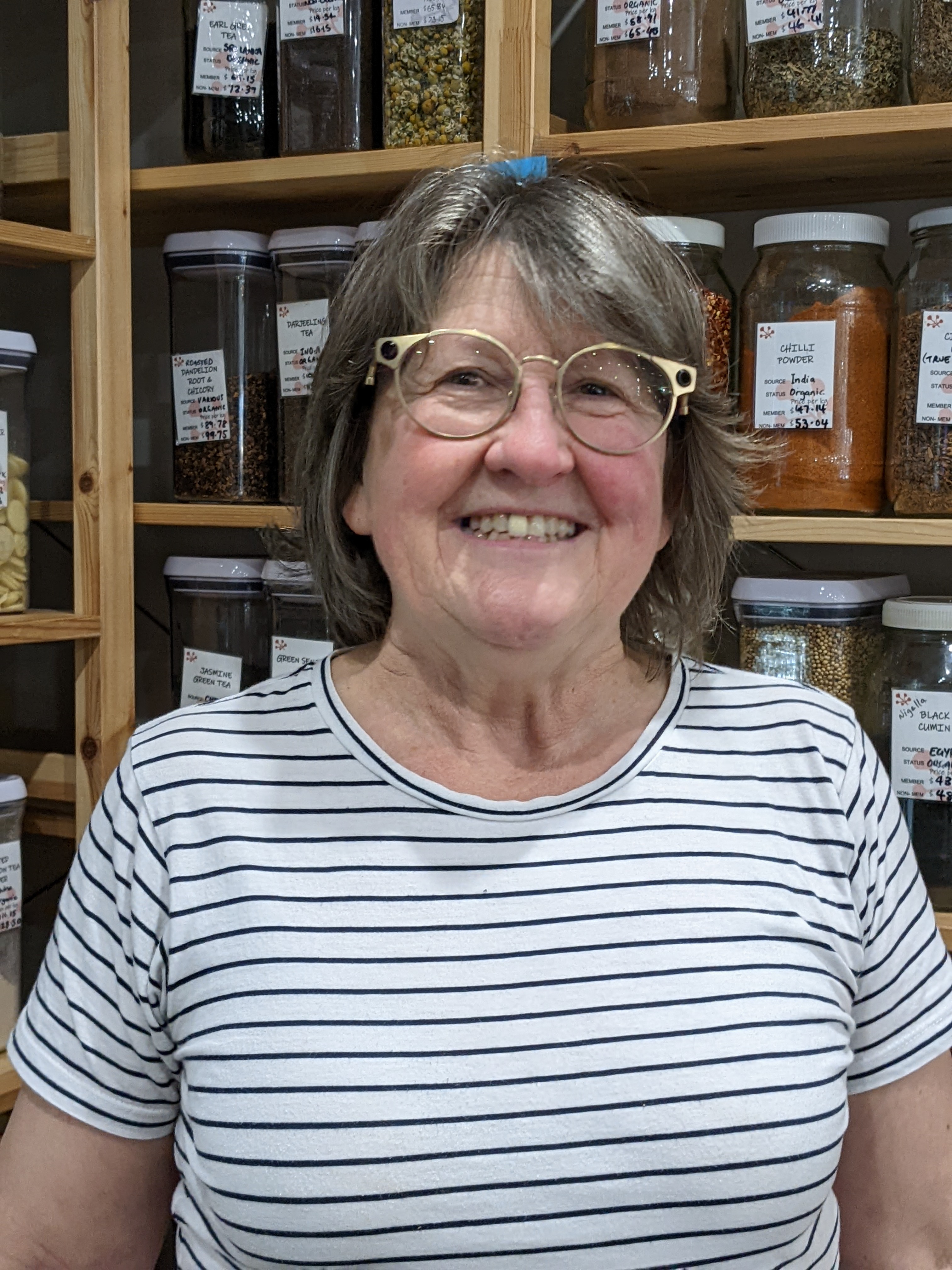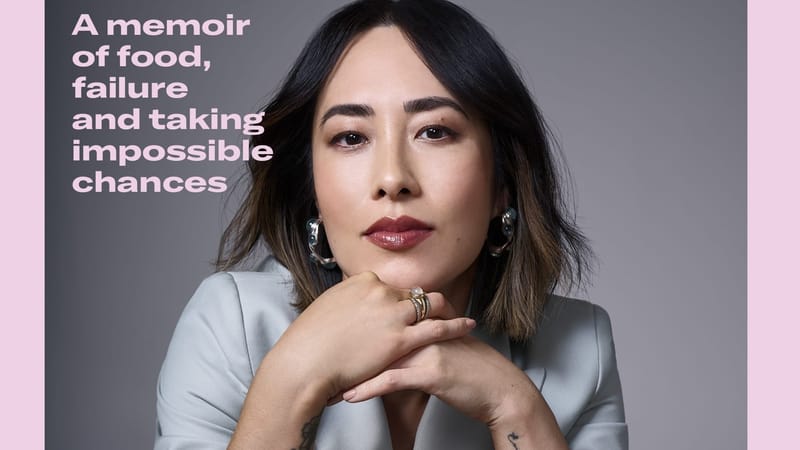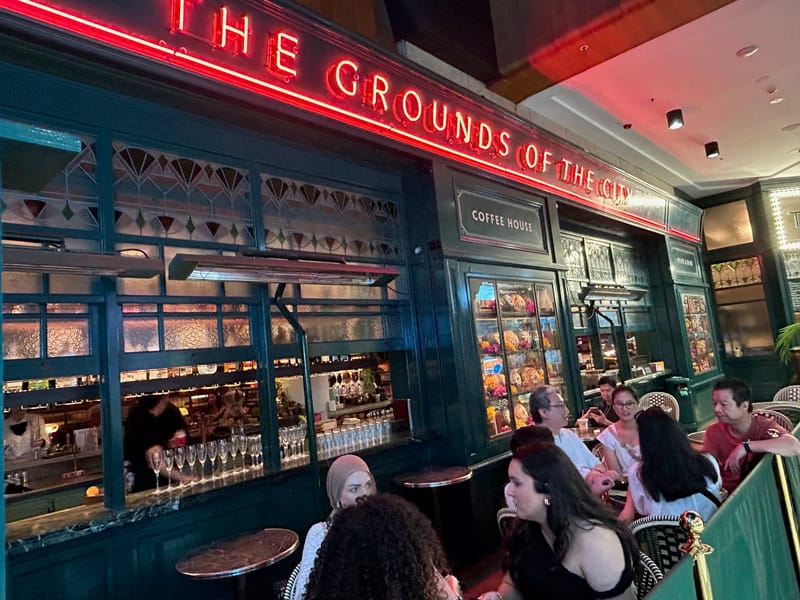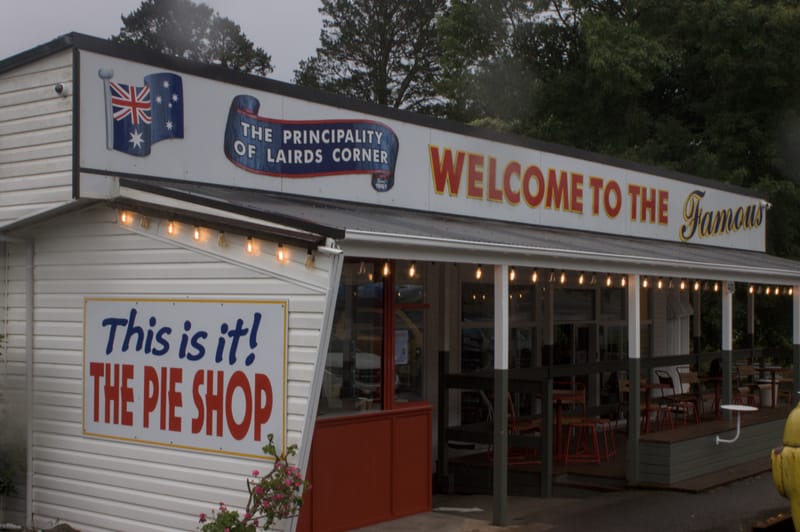Meet public health champion Amy Carrad
Dr Amy Carrad is a researcher with a background in public health, health promotion, and food system governance. Amy studied her undergraduate degree and her PhD at the University of Wollongong before moving to Canberra in mid-2022. She is currently employed at ANU working on a project related to the
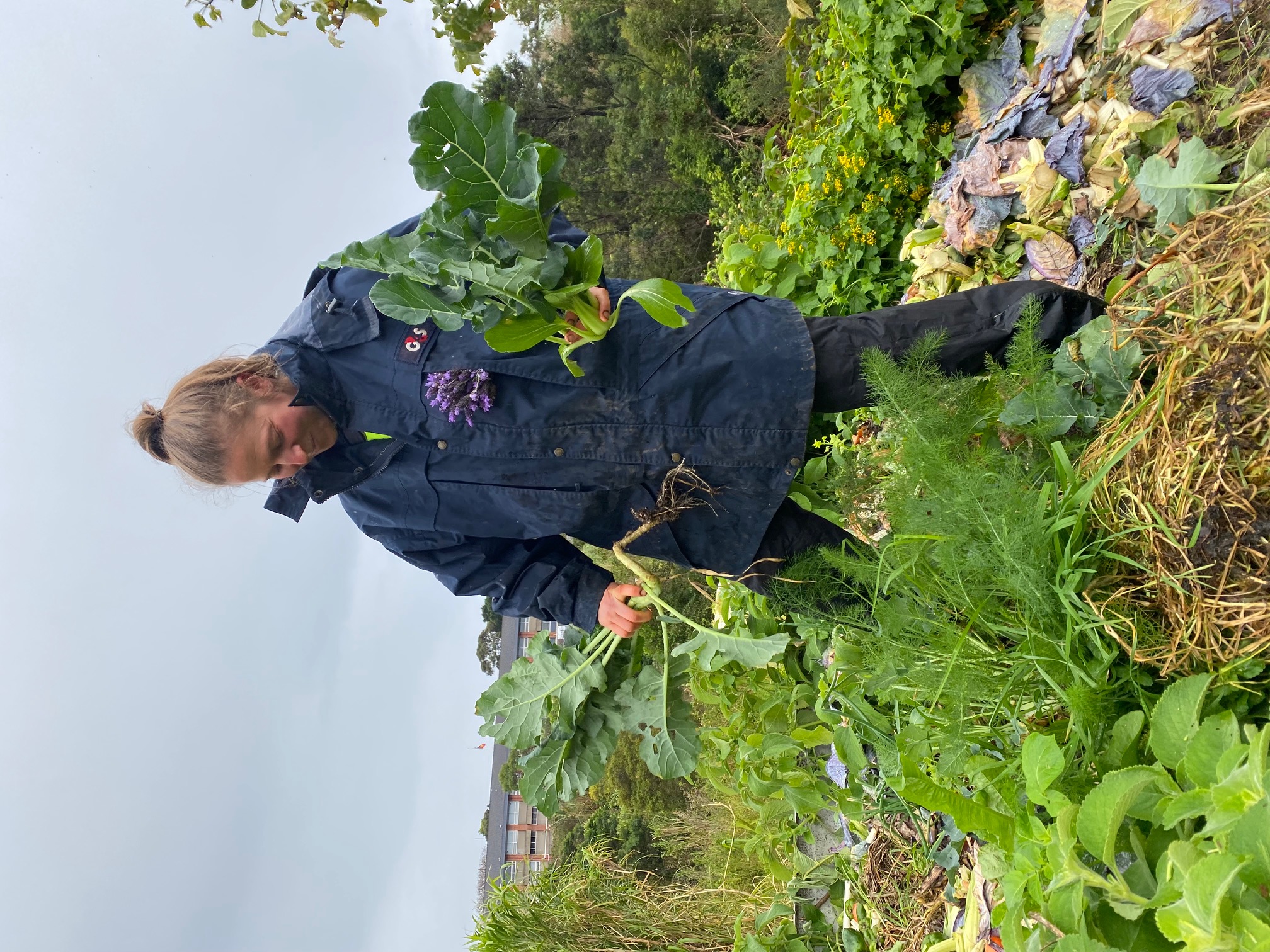
Dr Amy Carrad is a researcher with a background in public health, health promotion and food system governance. Amy studied her undergraduate degree and her PhD at the University of Wollongong before moving to Canberra in mid-2022. She is currently employed at Australian National University (ANU) working on a project related to the structural drivers (e.g., power, privilege, wealth) of social and health inequities.
Amy is a self-confessed Parkrun addict, “everyday cycling” advocate, home-cook extraordinaire and food-waste warrior.
I first met Amy through the Healthy Cities program Stir It Up!, which I covered in an article in November 2022. Amy was the group’s unofficial photographer, taking loads of snaps of everyone as well as the food at our regular meet ups. Not content with just sharing the photos, she would compile a booklet telling the story of the meeting and captioning all the photos for a great record of what SIU gets up to.
I asked Amy about the future of food, inequality and the need for reform – and how you can help at a local level by volunteering at food-related community initiatives.
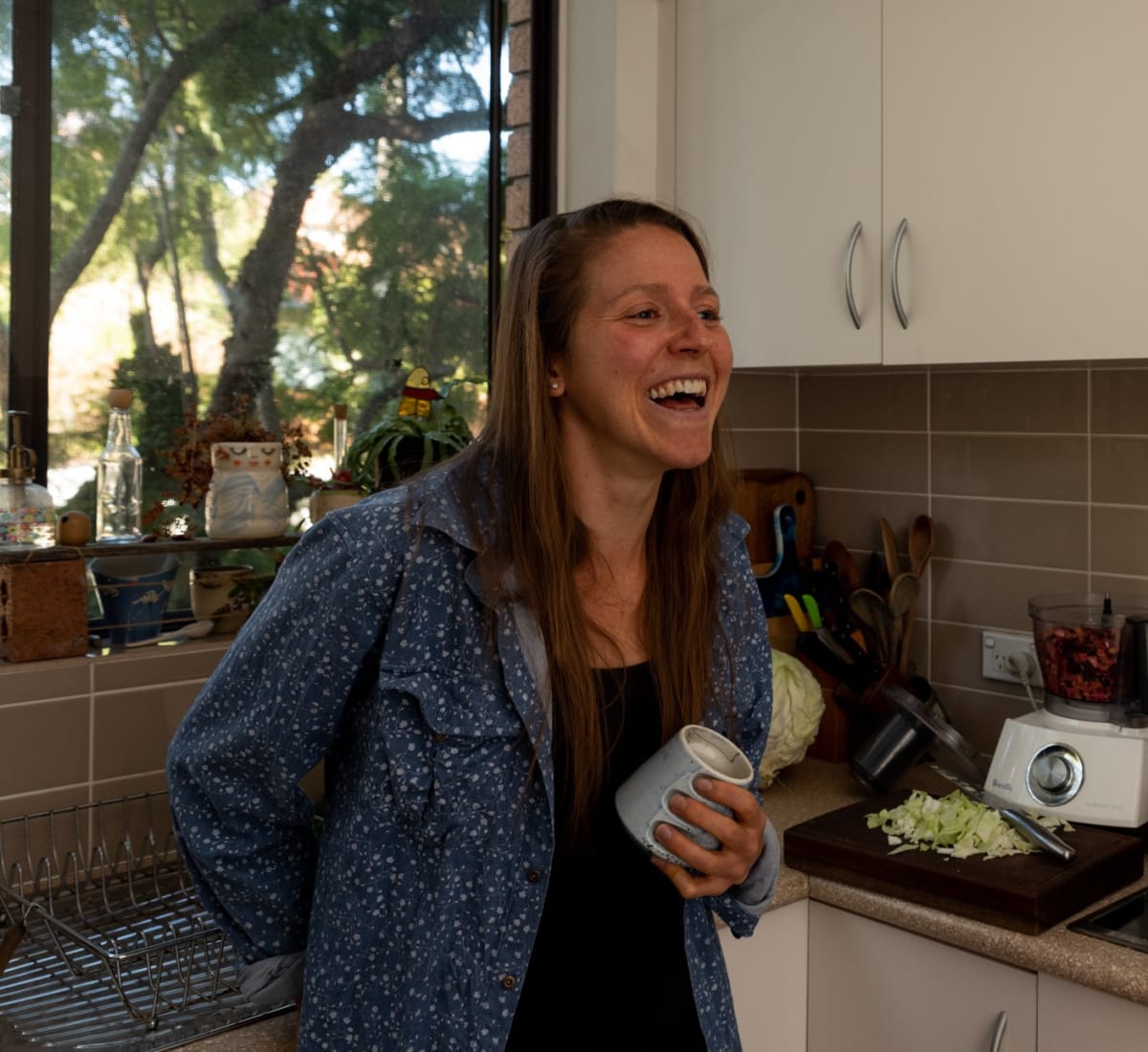
What led to your interest in public health and food systems?
I studied a Bachelor of Public Health, went on to do my Honours, and then PhD all through the University of Wollongong. I can still remember that at the end of school, when looking at university courses, it was the public health degree, but specifically the mention of the Ottawa Charter for Health Promotion that caught my eye. I wouldn’t say that I had a specific interest in food systems (in an academic sense) until later on.
However, my Honours research project did look at vending machine food environments on the university campus and Wollongong hospital, as well as modelling one of the early proposed algorithms for the Health Star Rating, which we now see on a lot of packaged food products. My PhD stepped away from food systems specifically, to explore how sporting organisations and clubs could be health-promoting more broadly (beyond physical activity). But while I was doing my PhD and since then, I spent a lot of time volunteering in food-related community initiatives (e.g., Stir it up! and Green Connect’s urban farm) because that’s what I was passionate about by that stage.
At a more intimate level, as a ‘relatively’ young person, the one thing that causes an overwhelming feeling of jelliness deep inside me is thinking about the future of food and water.
I’m terrified about the future of our food system, not only for me, but even more so for the children my friends are having at the moment. It’s in my soul, and that level of connection makes me determined that we need to drastically reshape the way things are done at the moment, not only in terms of food production (though also that), but also broader structures in society such as people doing long hours in paid work, leaving them no or little time for participating in community activities, and the shameful social, economic and health inequities we have in Australia.
What has your research work shown about food systems?
I really got to sink my teeth into food systems when I was hired as a project manager and research assistant on a research project funded by the Australian Research Council (ARC). This project was looking at how local governments and civil society organisations were engaging in food system governance – governance here meaning the “formal and informal rules, norms and processes that shape policies and decisions that affect food systems” (High Level Panel of Experts on Food Security and Nutrition of the Committee on World Food Security (CFS), which is the United Nations body for assessing the science related to world food security and nutrition).
The main component of the project involved analysing policies and strategies from all of the local governments (Councils) in NSW and Victoria, which is 207 Councils in total. We analysed 2266 documents! There is a fun visual summary and some recorded presentations/podcasts of these results on our website. As a very general overview, we found that Victorian Councils were more active in food system governance than those in NSW, and despite the rhetoric that Councils are only involved in "roads, rates, and rubbish", they’re actually doing quite a lot in food systems.
We then interviewed staff members from a selection of Councils in each state to find out the enablers and barriers they faced in developing and implementing a food system policy or programs. Factors such as there being a champion within the Council who pushed for action on food systems, supported by high-level leadership. Barriers included the absence of a mandate to act on food systems (thus placing priority on other issues), limited funding, and Council departments working in silos.
We were able to put our research to good use in our submission to the NSW Parliamentary Inquiry into Food Production and Supply, and got called to give evidence at one of the hearings. We can see that some of the recommendations we and others made are directly incorporated into the recommendations the Committee included in their report. I love being able to put the behind-the-scenes research work to practical use that should/could ultimately have real-work impact.
I’ll briefly touch on the second component of the research project, which was looking at civil society organisations, because it links well to one of the below questions. We also conducted a survey of Australian civil society organisations (e.g., non-government organisations, social enterprises) that identified as being involved in food system governance to find out who is out there, what they are doing, and the enablers and barriers they face. We had 43 organisations respond, who were mostly involved in education, food security, policy advocacy, and sustainability and environmental issues. Common factors they faced as barriers to their work were scarce, short-term and restricted funding, low internal organisational capacity (i.e., often reliant on volunteers), and governance participation processes that were not accessible or user-friendly.
What is your vision for local and/or global food security?
The utopian vision? It is huge, and if you catch me on a pessimistic day, I can’t say I truly believe it is achievable. The vision would be to have a redistribution of power in society (and thus food systems). A complete transformation of capitalist societies so that we erase inequities. This redistribution of power idea is what my current research at ANU focuses on. Food (in)security is not foremost a food production problem (despite what some might like to tell you).
Food insecurity is more driven by social and economic inequities that produce haves and have-nots in our society. We need a society that is structured in such a way that everybody has the agency to participate in life and their food systems in the ways they wish, and with dignity.
This doesn’t mean I want everyone to be growing their own food – that won’t be appealing to everyone. But those who want to should be able to. Those who don’t should have adequate resources to appropriately recompense growers for their efforts. At the moment, we’re in a position where making ethical and environmentally sustainable purchases (e.g., organic, from farmers’ markets, from businesses where all workers are fairly paid) can be financially challenging for people on lower incomes. We need the default to be that there are only ethical options, and that everyone has the resources to participate in that ‘marketplace’.
Where do you see yourself in five to 10 years?
I’m terrible at forward planning. I’ve always rolled from one thing to the next opportunity that comes up. Having said that, I know now that I really love research, so I can see that as my future in the next 5-10 years and beyond. I might need another research project to work out what my main niche is, but I suspect it will relate to food systems governance – definitely more focusing on what we’d call the structural factors or components (as compared with, say, nutrition education – though that is all part of the food system).
There is a lot of momentum in that space in Australia in recent years with the NSW Parliamentary Inquiry into Food Production and Supply (from which a pretty great report of recommendations was handed down – yet to see what, if any, the government will take on), a national Inquiry into Food Security, and the CSIRO’s ‘Transforming Australian Food Systems’ Discussion Paper. That gives me hope that we might see some positive changes in Australia, and that presents plenty of opportunity for research.
What can we do, as consumers?
I’ve had a few chats with Berbel Franse (coordinator of Food Fairness Illawarra, among other things) about this term…‘consumers’, and lots of other people around the world have thought and written extensively about it. ‘Consumers’ can tend to frame food as a commodity, and commodification of food and food systems has been driving a lot of the problems we see with the world in terms of nutritional, environmental, economic, and social issues.
Food is a fundamental human right, not a commodity. Some people prefer the term ‘eaters’, but I feel that isn’t quite right either. ‘Citizens’ or ‘food citizens’ is something I find a lot more empowering and active. Consumers and eaters are only the takers of things, but citizens are actively involved, and have to (or can) give to and receive from the food system and their communities.
So, what can we do as individuals? We can embrace this notion of citizenship rather than consumerism. We can move from individualism to a collective mindset. The ways we interact with the food system impact others every day, even if we can’t see it, and we need to be mindful of that.
Something that would be very useful in a practical sense would be throwing your support (volunteering time, donating, etc.) to civil society organisations that are walking the talk. Our research told us that these organisations are short on funding and people, but they’re up against huge national and transnational corporations with an abundance of money, power, and resources.
For Illawarra locals, a great place to start looking is the Food Fairness Illawarra fair food directory, which has listings for volunteer opportunities, as well as various local organisations and businesses that you could donate to and/or purchase from. There are also lots of organisations around Australia working at regional or national levels, and you can usually participate online. I’m involved in the Australian Food Sovereignty Alliance’s refresh of the People’s Food Plan, Australia’s Right to Food Coalition, Young Farmers Connect, and the Food Governance Node through the University of Sydney.
Whatever we do, we need to do it today (or maybe tomorrow, but not much longer after that). Not only for ourselves, but also for the great, great, great-grandchildren of those kids my friends are having at the moment.

